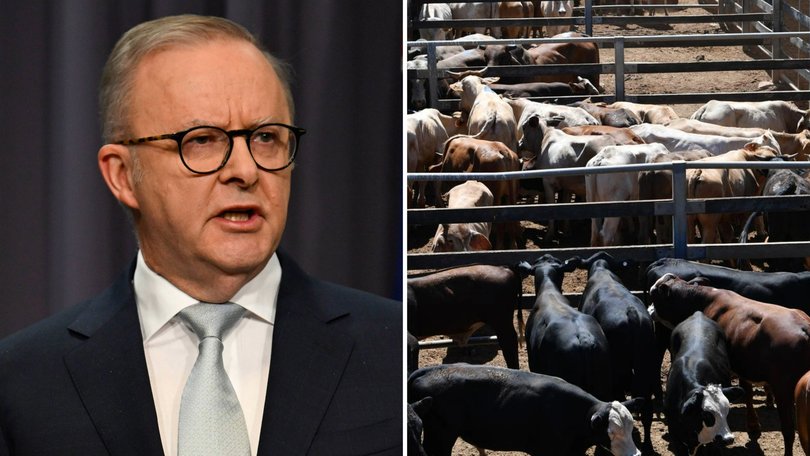Australia lifts biosecurity ban on US beef after decade-long review, aim to ease Trump tariffs
Australia has fully lifted a ban on US beef imports as it tries to soften the blow of US tariffs without putting the nation's biosecurity at risk.

Australia has opened the door to more US beef imports by lifting biosecurity restrictions, as the government seeks ways to dampen the blow from Donald Trump’s tariff regime.
The federal government revealed the changes on Thursday while stressing that the decision follows a decade-long science-based review.
“The Albanese Labor government will never compromise on biosecurity,” Agriculture Minister Julie Collins said.
Sign up to The Nightly's newsletters.
Get the first look at the digital newspaper, curated daily stories and breaking headlines delivered to your inbox.
By continuing you agree to our Terms and Privacy Policy.“Australia stands for open and fair trade - our cattle industry has significantly benefited from this.
“(The department) is satisfied the strengthened control measures put in place by the US effectively manage biosecurity risks.”
Although the US has been able to send beef to Australia since 2019, any beef raised in Canada or Mexico before being slaughtered and processed in the US was previously barred due to biosecurity concerns.
One concern was that Mexico’s livestock tracking system could inadvertently lead producers to import beef from parts of the continent where there were disease outbreaks.
But the latest announcement will lift the ban on beef sourced from Canada or Mexico after the US introduced more robust movement controls in late 2024 and early 2025 allowing for improved identification and tracing throughout the supply chain.
The change could be used as a bargaining chip as Australia continues to push for tariff exemptions from the US after the US president earlier this year demanded Canberra lift the beef import restrictions.
Australia is the biggest exporter of beef to the US.
According to Bendigo Bank’s recent mid-year agriculture outlook, Aussie beef will continue to be on the menu in the US, where herd numbers are in decline due to drought and increased costs of agricultural inputs.
Most Australian goods sent to the US currently face a 10 per cent tariff, while steel and aluminium products have been slapped with a 50 per cent tariff.
Mr Trump has also threatened a tariff on pharmaceutical imports to the US, which is one of Australia’s biggest exports to its ally.
Although Prime Minister Anthony Albanese is yet to secure a face-to-face meeting with Mr Trump - after their first scheduled talks were scuppered by the conflict in the Middle East - Australia has largely avoided the brunt of the tariffs as most of its exports are only exposed to the baseline levy.
But other aspects of the US-Australia relationship remain uncertain.
The nuclear submarine deal between Australia, the US and the UK - under the AUKUS security alliance - could be in peril after the Pentagon launched a review to examine whether the agreement aligns with Mr Trump’s “US first” agenda.
However, Mr Albanese has confirmed Australia made another scheduled payment as part of the deal to acquire US nuclear submarines, taking the total paid to $1.6 billion so far.
“It’s about increasing ... their industrial capacity” to build the submarines, he told ABC television on Wednesday.
Under the $368 billion program, Australia will buy at least three Virginia-class submarines from the US sometime in the early 2030s.
A new class of nuclear submarines will be built in Adelaide to be delivered in the 2040s.
